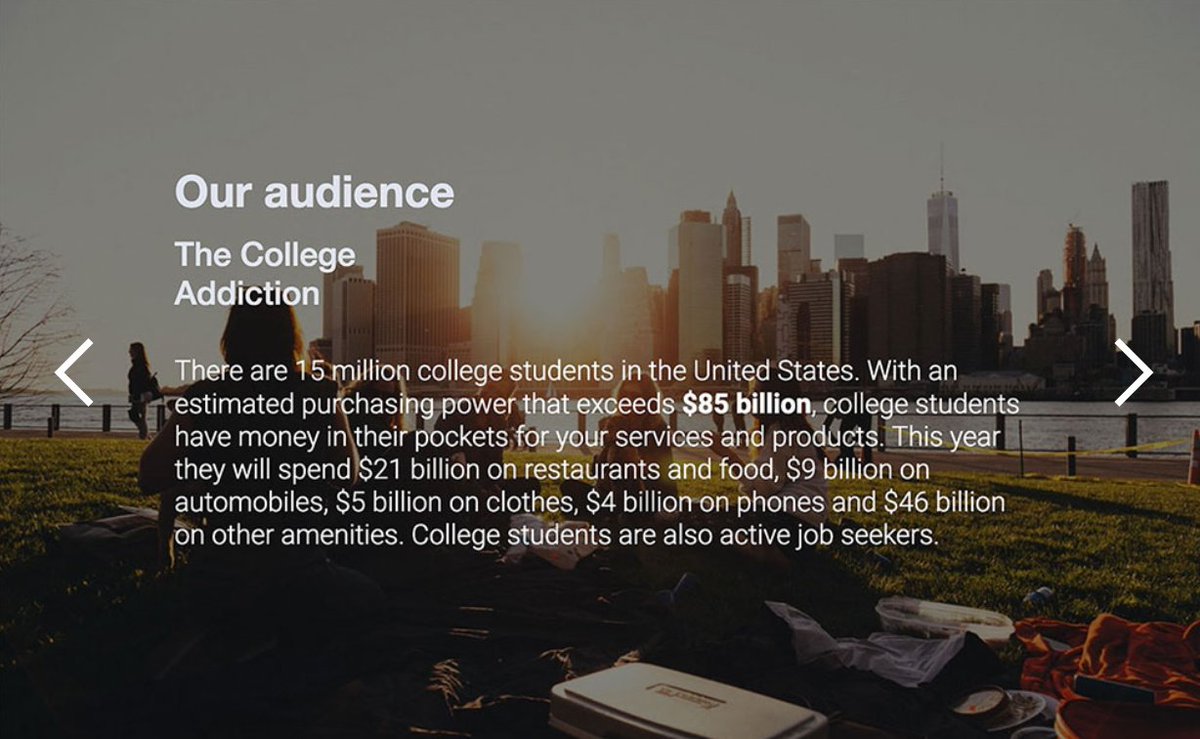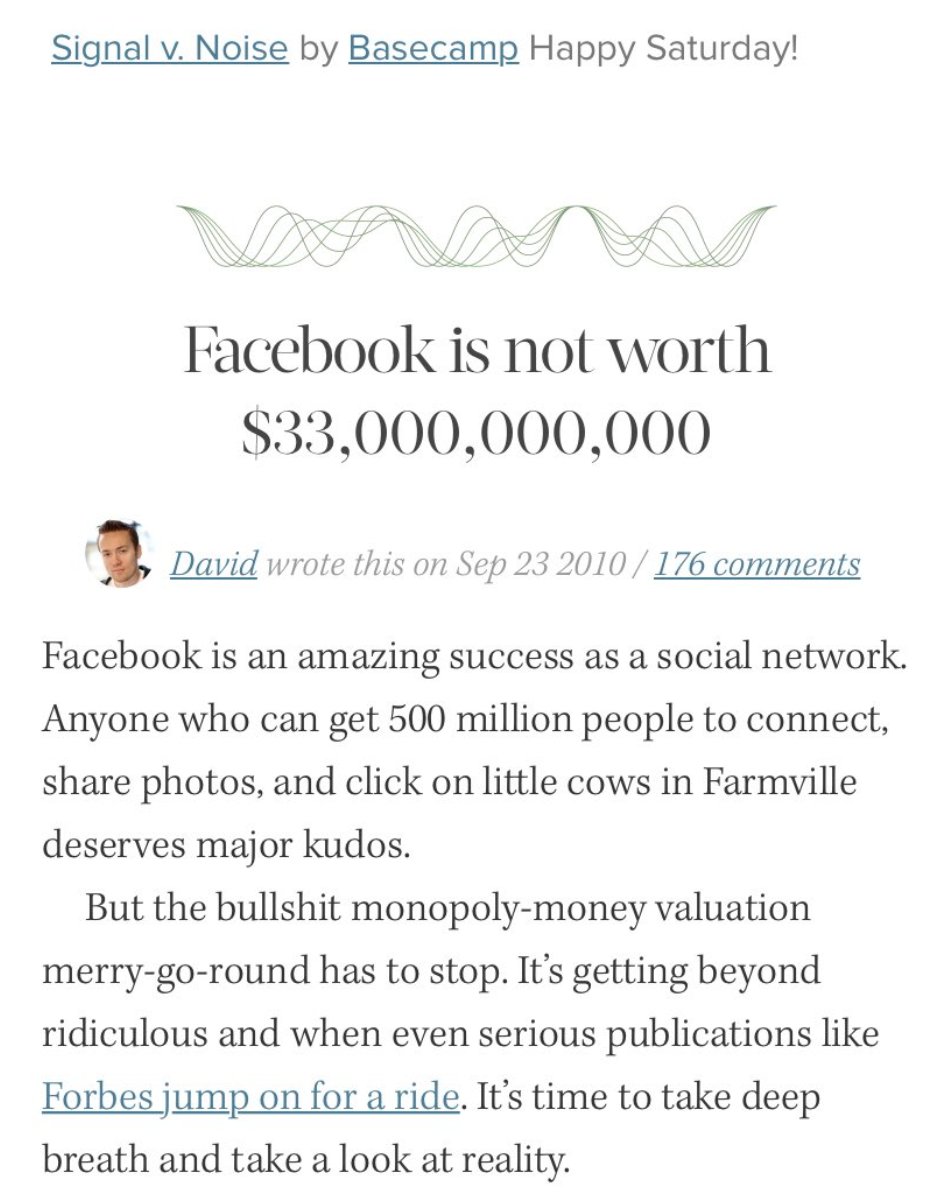The news got out that Clubhouse recently raised a $12M round led by a16z at a pricey valuation ($100M range). This piece of news generated fierce criticisms, which I think is unfair.
Here& #39;s why https://abs.twimg.com/emoji/v2/... draggable="false" alt="👇" title="Down pointing backhand index" aria-label="Emoji: Down pointing backhand index">
https://abs.twimg.com/emoji/v2/... draggable="false" alt="👇" title="Down pointing backhand index" aria-label="Emoji: Down pointing backhand index">
Here& #39;s why
Consumer non-transactional social apps represent a different bread of startups. In order to understand their probability of success, playing with LTV/CAC ratios, trying to wrap your head around TAM, or focusing too much on growth isn& #39;t helpful
Here& #39;s an excerpt from Facebook& #39;s original pitch deck, detailing their thinking around TAM & expansion plans
(User) growth is important, but at a deeper level, what matters is the growth of users completing the core action enabled by your product/service (see @sarahtavel framework on this) https://medium.com/@sarahtavel/the-hierarchy-of-engagement-expanded-648329d60804">https://medium.com/@sarahtav...
Core action completion is a fantastic proxy to assess how much value is truly being created for the end-user. At the earliest stage, social founders want to nail this, and this is very, very hard
Benchmark led a 13.5M Series A in Snap in 2013 when the company wasn& #39;t making any money. Yet, core action completion was growing phenomenally fast
Core action completion in Consumer Social mimics the concept of "Liquidity Quality" coined by @bgurley. The absolute size of the (network/marketplace), does not matter at this stage, but individuals strength of involvement do
Being an outsider, I don& #39;t have access to Clubhouse engagement metrics, but seeing some of the world& #39;s most sophisticated investors like Benchmark and a16z outbid each other to get in at this price pretty much guarantee that those are... phenomenal
Anecdotally, a few people on Twitter have displayed their iOS time-tracking data, highlighting impressive numbers
"But they don& #39;t make any money!" - consumer social products create the strongest most durable direct network effects. The scale they can reach is hard to grasp. The hardest part is getting to scale, not monetizing (even though it& #39;s not easy and many have failed in the past)
But it& #39;s always easier to be on the pessimistic side of things. Even at 500M users, FB was criticized for this
The risk-reward ratio with that perspective is just too compelling not to get VCs excited about this when their whole business model is rooted in Power Law distribution. @joshelman explains it perfectly here https://twitter.com/joshelman/status/1261450044483334144?s=20">https://twitter.com/joshelman...
Obviously, a lot of things still need to be demonstrated & only time will tell if Clubhouse was a good investment (long term engagement, accruing benefits, flywheel loop, monetization) but dunking on it for just being "another social app that won& #39;t make money" seems wrong
hey clubhouse, can i please get an invite now that I& #39;ve said nice things about you thanks

 Read on Twitter
Read on Twitter










